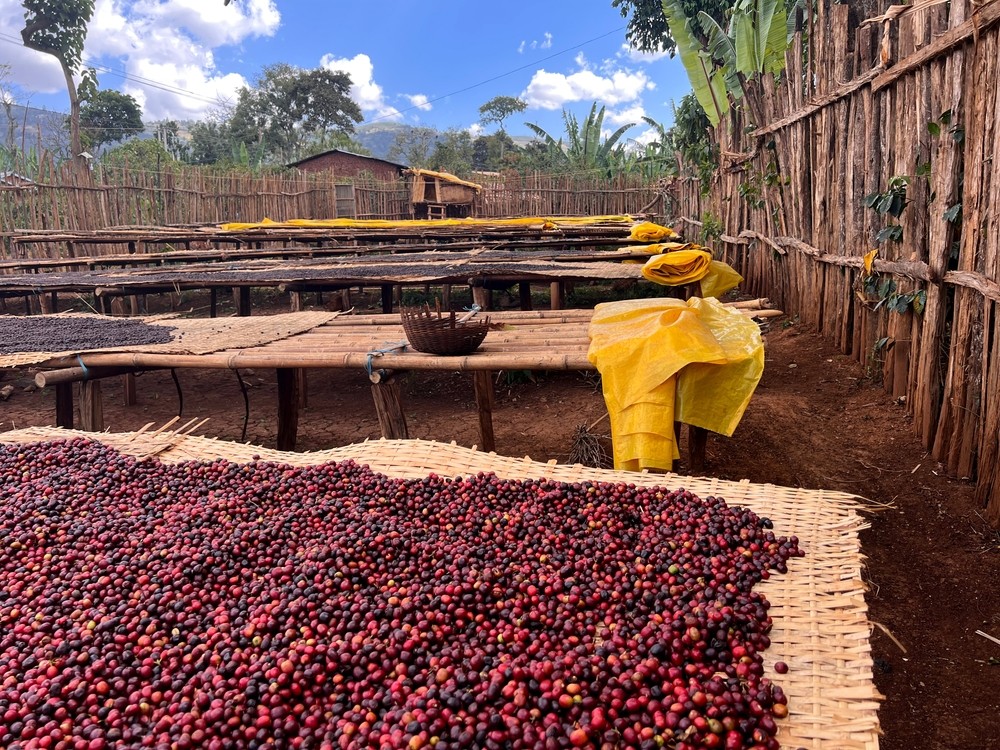WESTERN HIGHLANDS (BAMENDA, BAFOUSSAM, DSCHANG, BOYO)
The Western Highlands of Cameroon, encompassing areas such as Bamenda, Bafoussam, Dschang, and Boyo, form the country’s principal Arabica coffee-producing belt. This region lies at altitudes between 1,200 and 2,000 meters above sea level, characterized by cool temperatures, abundant rainfall (ranging from 1,500 to 2,500 mm annually), and fertile volcanic soils that are ideal for high-quality coffee cultivation.
In these highlands, coffee is primarily Arabica, particularly the Java, Typica, and Bourbon varieties, known for their fine acidity, medium body, and complex flavour notes often described as floral, fruity, and slightly spicy. Cultivation is dominated by smallholder farmers, typically working plots of 1–2 hectares under mixed agro forestry systems where coffee is grown alongside shade trees, bananas, and food crops.
Processing methods are mostly washed (wet), producing cleaner and brighter cups suitable for specialty markets. In some areas, however, natural (dry) processing is also practiced due to limited access to washing stations, resulting in sweeter and fruitier profiles. The region’s cooperative unions and farmer groups, such as those around Bamenda and Boyo, play a key role in collecting, processing, and marketing coffee for both domestic consumption and export.
Despite favourable agro-ecological conditions, the Western Highlands face challenges including aging trees, limited access to modern inputs, and fluctuating global prices. Ongoing initiatives aim to rejuvenate coffee farms, promote organic and shade-grown production, and improve post-harvest handling to enhance quality and traceability.
Overall, the Western Highlands stand out as Cameroon’s heartland of Arabica coffee, offering beans with distinctive acidity, aroma, and balance making them competitive in regional and international specialty coffee markets.





